What Jan Moir can teach us about handling an Internet brand crisis
Yesterday I was posting a few thoughts on the fall-out from Jan Moir's article about the death of Boyzone's Stephen Gately. People have linked these events with those surrounding The Guardian & Trafigura earlier last week as showing a big shift in the power balance between 'the establishment', represented by the media and big business, and 'the people', represented by @stephenfry on Twitter. I think these events are a continuation of a longer term trend, where complaining about issues and whipping up a vortex of righteous disgust on the Internet has become easier and easier.
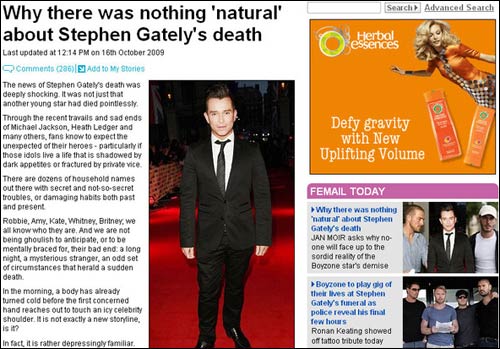
A few years back I quoted Chris Kimber on the BBC Internet blog:
"Only 10 years ago, radio was a one-way experience, but digital technology has given the radio ears that provide programme-makers with instant feedback. Before they had to rely on getting letters back but now we have chat rooms, message boards, text messaging and e-mail. Programmes can really connect with audiences in a way that 10 years ago they could not."
This shift for media organisations isn't going to go away. In fact, with ubiquitous mobile broadband not far over the horizon, a hyper-connected society might also turn out to be a hyper-indignant one. The question is, as a business, what are you doing about it? You need to have a business continuity plan in place about responding to this kind of crisis, and some of the elements of the plan need to be technical, and based on delivering timely information on the web.
Don't make changes in haste - be transparent and through
If you are going to make changes to your site in response to criticism, be transparent about it. 'Stealth edits' will only lead to people posting screen shots of how the page used to appear taken from the Google Cache, and accusations that you are trying to wriggle out of the situation.
Changes made in haste can also not be done thoroughly. Earlier this year, realising it broke a reporting injunction, The Mirror withdrew a story about Alfie Patten, the boy said to be a father at the age of 12. However, they didn't remove the URL, which rather gave away the details of the story that they were forbidden from publishing.
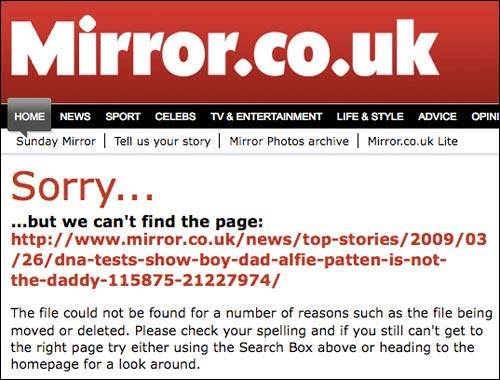
In the Jan Moir case, the Mail changed the headline of the piece, and also the URL. Originally titled "Why there was nothing natural about Stephen Gately's death" the URL was http://www.dailymail.co.uk/femail/article-1220756/Why-natural-Stephen-Gatelys-death.html. This now redirects to http://www.dailymail.co.uk/femail/article-1220756/A-strange-lonely-troubling-death--.html, reflecting the 'gentler' headline "A strange, lonely and troubling death...". You can see both headlines on display in this screenshot.
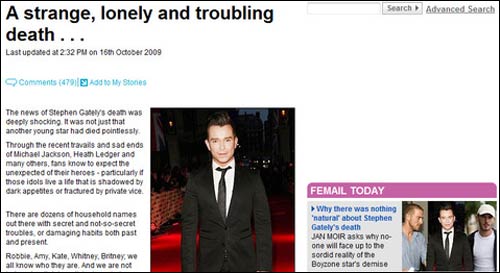
Plan for emergency changes to your commercial inventory
Another change the Mail made to the story was removing advertising from the page. Ask yourself whether you can do that on your site - deliver one page without specific advertising? Check who is able to make that change, and who would do it out of office hours. Examine your contracts with companies like Google who may have 'contextual adverts' running on every page. Is it easy to switch those off? Do you have a policy for monitoring which adverts are appearing on controversial pages and accordingly putting domains on your AdSense blocked list?
Have an escalation procedure for your online community
If you run a site which has a user-generated content or community element to it, what happens when that is under pressure? This isn't just about whether the application continues to work under heavy load, but about the capacity to moderate the site. Are you able to recruit extra moderators at short notice? If there are delays in comments being posted, people are liable to assume this is censorship. In the middle of a brand reputation crisis, any mis-moderation of user-generated content is likely to enrage the angry mob further. Have clear community moderation rules available on your site, and always moderate to the rules.
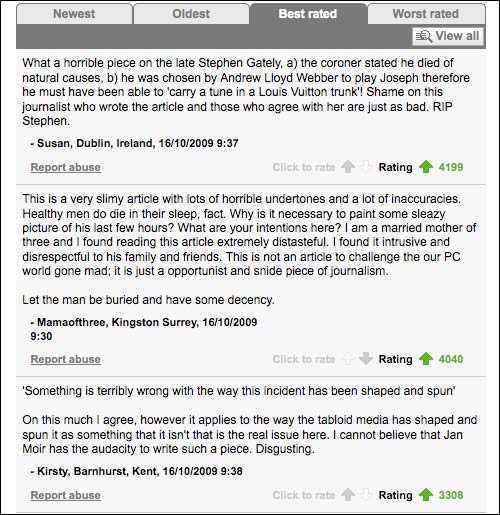
Respond everywhere your audience is looking
What web channels will you use to respond to the crisis? At the time of the Brand/Ross/Sachs scandal, I criticised the BBC for appearing 'paralysed' in the face of the public disquiet. Even after the story had been developing for a couple of days, visiting key pages on the BBC website for the Russell Brand show, Radio 2, and Jonathan Ross showed no evidence that the BBC had responded at all. The official response was on the press office website and at bbc.co.uk/complaints, but corporate communications are for corporate users. If you want to communicate directly with an angry public, you need to put your message across in the places they are most likely to visit.
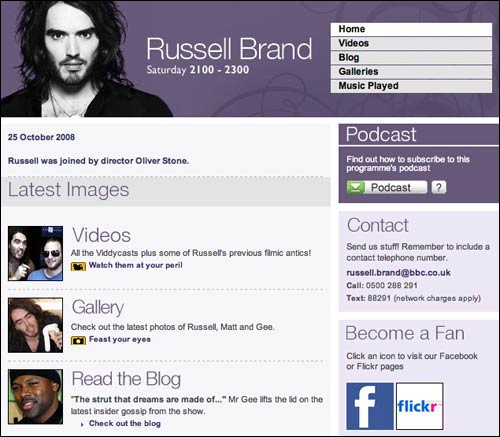
Know the scalability of your web site and services
You also need to consider the scalability of your hosting. I worked on a project at the BBC to introduce a new online complaints procedure in the wake of the Hutton enquiry. A month before it was due to launch, the BBC announced it was going to screen "Jerry Springer: The Opera". When I saw the level of complaints generated by that, I had to re-do my maths about scalability requirements for the new site.
Complaints about Jan Moir's piece melted the PCC website, which is more used to dealing with a trickle rather than a flood. Does your hosting allow you to scale up capacity quickly? What will the bandwidth costs be if you find yourself in this kind of situation? If you are a major business, do you have relationships in place with people like Amazon or Akamai to keep your site up and running in an emergency?
Do it today!
As I say, this isn't going away. It is going to get easier and easier for people to exchange outrage, and the links and information required to act on that outrage to make a complaint. You need to have a plan for what happens if you find yourself at the eye of a perfect Internet storm.
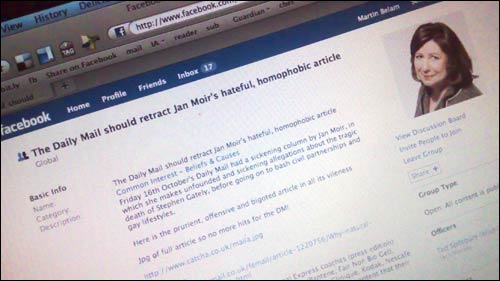
Hi martin,
Very good post. I would add a couple of (contradictory) lessons.
1. Don't be nasty/stupid/wrong in the first place.
2. Accept that if you are nasty/stupid/wrong and you think that your readers like you that way then don't apologise or act guilty - all those people complaining give you a massive publicity boost.
cheers
Charlie
I was appalled by, commented on and complained to the PCC about, Jan Moir's homophobic article, despite not knowing anything about Stephen Fry's Twitter comment(s). He did not, and does not, represent me or my feelings in any way.
Does this make me not of the people? According to this load of drivel, it does.
Hey Martin. This stuff is spot on. It truly is a shame that so many big businesses seem "stuck" in the old paradigm of business, thinking they can hide mistakes or purposeful negative actions from the light of the online community.
I think the best policy for any business/CEO/manager is to immediately publicly admit when they know they are wrong or made a mistake. Nobody hates a person who admits mistakes the moment he makes them, but the online community WILL backlash against people who try to hide mistakes.
Keep up the great posts.